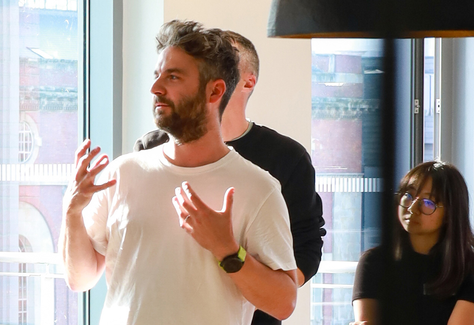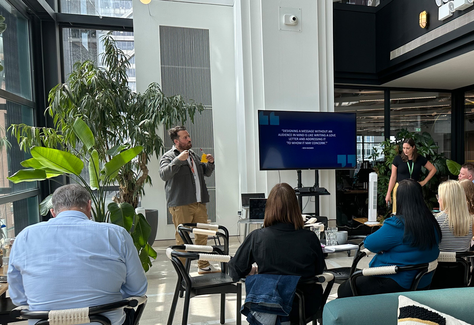About Us
We are
McCann Synergy
Truth well told, from the inside out.
For over a century, McCann has built iconic brands on one belief: Truth Well Told. McCann Synergy brings that same bold creativity to the world of work – shaping authentic employer brands, cultivating thriving cultures, and crafting meaningful employee experiences. When your people feel connected, valued, and inspired, your business doesn’t just run – it thrives.

BRANDS
BUILT ON PEOPLE
Brands aren’t what businesses claim; they’re defined by how your people live them. If your people don’t believe in your brand, no one else will – including those you hope to attract. We go beyond slogans and campaigns, turning brands into movements that ignite pride and inspire people to champion your cause.


CULTURES
THAT WORK
Strong cultures aren’t formed by buzzwords; they grow from trust, authenticity, and empowerment felt in every interaction. When people truly connect with your values and feel they belong, culture becomes a powerful driver of performance.
EXPERIENCES
THAT STICK
Your employee experience isn't a check-list, it's your peoples' every day. It’s not a one-off programme or a set of dusty policies; it’s how people feel when they start their day and when they wrap up their work. Every moment matters. From milestone achievements to daily team huddles, we shape experiences that make your people excited to show up and motivated to stay.

For your Business
When employees believe in the work they do, they bring more energy, innovation, and commitment. That passion translates into better performance and tangible returns on investment.
For your People
When your people are thriving, they’re healthier, happier, and more engaged. They don’t just do their jobs – they become advocates for your brand and inspire their colleagues.
For your Society
When work is driven by purpose and people feel part of something bigger, they build communities that reach beyond business. Inspired employees create positive ripples in society and drive real change.
Our approach
Discover
We uncover the truth about your people, your business and the world you exist within to define your unique advantage.
Define
We build from your truth to define the potent solution/s that meet your objectives in the most effective way.
Deploy
We craft connections through world-class creative that reflects your truth and drives tangible impact.

McCann Global Network
We believe in global capabilities, not global offices. McCann Worldgroup has more than 15,000 employees across 100+ countries, allowing us to offer a seamless end-to-end service which ensures our ideas resonate and can be activated in every corner of the globe.